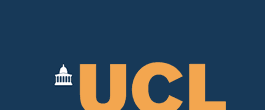October 2011
21 October 2011
Speaker: Amir Aryani (RMIT University, Melbourne, Australia)
Title: “Can we predict dependencies using domain information?”
Abstract:
Software dependencies play a vital role in program comprehension, change impact analysis and other software maintenance activities. Traditionally, these activities are supported by source code analysis; however, the source code is sometimes inaccessible, and not all stakeholders have adequate knowledge to perform such analysis. For example, non-technical domain experts and consultants raise most maintenance requests; however, they cannot predict the cost and impact of the requested changes without the support of the developers.
In this talk, I will present a novel approach to predict software dependencies by exploiting coupling present in domain-level information. This approach is independent of the software implementation; hence, it can be used to evaluate architectural dependencies without access to the source code or the database.
In addition, I will discuss the results of a case study on a large-scale enterprise system, in which we demonstrate how up to 68% of the source code dependencies and 77% of the database dependencies are predicted solely based on domain information.
June 2011
28 June 2011
Speaker: Fabiano Dalpiaz (DISI)
Title: Software Self-Adaptation via Goals and Commitments
Abstract: Self-adaptive software systems are systems that monitor their environment and compensate if there are deviations from their requirements. Self-adaptivity is particularly important for distributed systems that involve both software and human/organizational actors because of the volatility as well as uncertainty that permeates their operational environments. We refer to such systems as Socio-Technical Systems (STSs).
In this seminar, we present a framework for designing self-adaptive software that operates within an STS. Our framework is driven by requirements models, which are used to identify deviations from expected system behaviour as well as to determine new configurations (variants) to satisfy the requirements.
Specifically, our framework relies upon the following ingredients: (i) contextual goal models express system requirements and the influence of the operational context on system goals; (ii) social commitments represent the social relationships among participating actors in the STS. Our recipe for adaptation ensures that software keeps fulfilling its purpose while choosing variants that are compatible with the current operational and social context.
